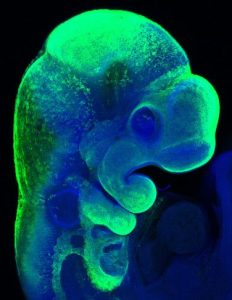Postdoctoral Research Associate: Modelling Neural Crest Anomalies (mouse/human)
Posted by Karen Liu, on 5 August 2025
Job type:
Location: King's College London, UK
Closing Date: 25 August 2025
The Liu lab is looking for a postdoc with a love of embryos and developmental biology! This 3-year MRC-funded post is part of a collaboration between Karen Liu’s lab at King’s College London and Marco Trizzino’s lab at Imperial College London.
The postdoc will be based at King’s and will work closely with a second postdoc based in the Trizzino team at Imperial. The focus is on modelling congenital CHD3 anomalies, which cause Snijders Blok-Campeau Syndrome (SBCS). SBCS is a rare autosomal dominant developmental disorder which manifests with impaired craniofacial development and intellectual disability. SBCS was discovered only six years ago, and with ~100 patients already diagnosed, this likely represents significant underestimation of worldwide cases. CHD3 is part of the Nucleosome Remodelling and Deacetylase complex (NuRD) family of chromodomain/helicase/DNA-binding proteins, which open chromatin, with distinct CHD proteins predicted to drive lineage-specific cell states during embryogenesis. Based on patient phenotypes and our preliminary findings, we hypothesize that CHD3 is specifically dedicated to development of the neural crest lineage; thus, studies will reveal general principles underlying neural crest development.
We are looking for a postdoc with experience working with mouse models, ideally including experience with explant cultures and live imaging. There are also opportunities to work with human neural crest organoid cultures using patient-derived stem cells.
Informal enquires welcome to: karen.liu@kcl.ac.uk
Salary: £45,000
Start date: 1 September 2025
Closing Date: 25 August 2025
Scientific fields: Development and disease, Cell fate control and differentiation, Early embryogenesis, Stem cells
Model systems: Mouse, Human
Duration: Fixed term
Minimum qualifications: PhD

